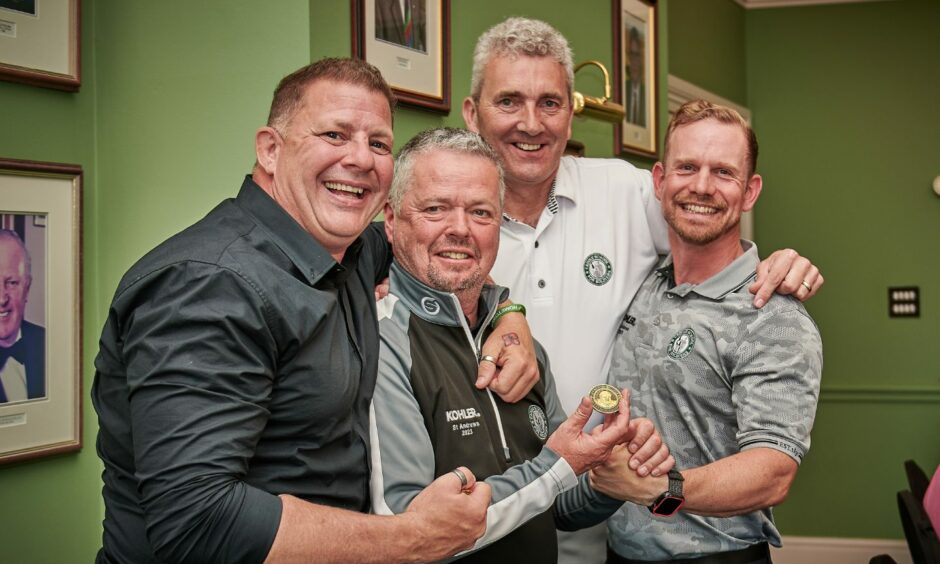
It’s more than four years since six soldiers from the UK, USA and Canada arrived at the Duke’s Course outside St Andrews, embarking upon a month long training programme to become caddies.
The brainchild of American novelist and author Don Snyder, the world’s first caddie school for soldiers had been a long time in the making after he heard about soldiers struggling to acclimatise to life after the Army.
His “outrageous dream” began when he worked two seasons as a caddie at St Andrews and Kingsbarns in 2008 and 2010.
Caddies are ‘tough as sled dogs’
At a point in his life where his children had all grown up and he had lost belief in himself as a writer, he realised something remarkable happens every time a caddie takes a stranger out on the golf course.
The finest caddies are intensely loyal.
They never give up on their golfer no matter how bad it gets out there.
They are “rugged and tough – tough as sled dogs”, he’d say.
Many also tend to be “refugees from another life”.
So when he started hearing about countless soldiers in America coming back to the world from the last two wars in Iraq and Afghanistan with Post Traumatic Stress Disorder (PTSD), he started thinking how those qualities found in caddies defined soldiers as well.
How does Caddie School for Soldiers work?
The aim of the world’s first residential caddie school for ex-servicemen was simple.
If those suffering from the physical and mental trauma of war could be trained up as caddies, and go out there and earn the trust of a stranger each day, they could earn back belief in themselves.
Four years on from that first session in February 2019, 43 ex-servicemen have been through the programme.
Don takes great pleasure in knowing that many have found work as caddies at the likes of the Old Course, Dumbarnie Links, Royal Portrush and Portstewart, as well as further afield including Brooklyn Country Club, Valhalla in Louisville, Kentucky, and Cabot Citrus Farms in Tampa, Florida.
He has recently secured a permanent home for the Caddie School for Soldiers at premises not far from the Duke’s Course at St Andrews.
But the final part of Don’s dream is that in future, international caddie school graduates will be able to spend the summer at the house and work local courses after graduating.
As Britain’s post-Brexit work visa rules continue restricting the ability of American and Canadian caddie school participants to work in Scotland – despite a general caddie shortage – he continues writing to UK Veterans’ Affairs Minister Johnny Mercer hoping for a change of heart.
What inspired Don Snyder’s dream?
Don is in a reflective mood when The Courier catches up with him in the Captain’s Room at the Duke’s Course clubhouse, outside St Andrews.
The Maine-based 72-year-old, who has been writing novels and non-fiction for 40 years, including the Emmy-nominated 2003 movie Fallen Angel, never served in the military.
However, as the son of an American Second World War veteran, and having experienced his own “darkness”, he’s felt well placed to do something to help.
As the latest intake of soldiers brought their four-week course to a close over bacon rolls and coffee at the end of May before caddying in the caddie school’s end of programme contest, the ‘Snyder Cup’, the laughter and camaraderie that filled the room reminded Don of everything that’s being achieved.
With the support of people like board president David Scott, champion caddie master Davy Gilchrist, cook and ‘shoulder to cry on’ Mo Hutchinson, operations manager Neil Ryan and mentors Sean and Chris, who are both caddie school graduates, he continues being amazed at the way six strangers from different military backgrounds can be “transformed into a family” in a few weeks.
A very personal story
Before the soldiers headed out onto the golf course, however, the room fell silent as Don told the tragic story of how his late father and mother inspired him to support military veterans in the first place.
Clutching a photograph of his parents, Don recounted how his own father returned to small town Pennsylvania from the Second World War and married Peggy, the only girl he ever loved.
Nine months later, in 1950, she gave birth to his twin sons.
Sixteen days later, however, she died.
Don’s father was shattered and spent that autumn sleeping on her grave.
In the mornings, soldiers he had gone to war with would swing by the cemetery and take him to the coffee shop in town to try to help him talk through his grief.
Setting out story in a book
When Don’s father finally told him this story about how the Second World War soldiers had saved his life, it was 1998 and his father was dying of a brain tumour.
Don set out to write a book about his mother’s brief love story with his father.
Of Time & Memory was published in 2000 by Alfred A. Knopf of New York.
During his research, Don discovered that Peggy was only 19-years-old and that she was dying slowly through her pregnancy.
But rather than save her own life, she chose to carry her twins to full term.
She had made her doctor promise never to tell anyone so that her sons would not have to go through life knowing they had caused her death.
When Don learned this later in life, he became haunted, day and night.
He says a “great darkness” settled over him.
Finding his way to Scotland, working here as a caddie “saved” him.
Inspired to save lives of others
Ten years later when he learned of the soldiers haunted by what they had been through, he knew that working as caddies could save their lives too.
“If I had to capture the Caddie School for Soldiers in one story, it would be the story of Mike Clark, the US Navy SEAL who came here in October 2022,” Don told The Courier.
“When I interviewed Mike, I was on Skype with him. I said ‘Mike if you enjoy this experience maybe you’ll send some of your friends?’
“He looked me in the eye and said ‘all my friends are dead’ – because he had lost them all in a helicopter crash.”
On August 6, 2011, a U.S.CH-47D Chinook military helicopter operating with the call sign Extortion 17 was shot down in Afghanistan.
The resulting crash killed all 38 people on board including 17 US Navy SEALS.
It was the deadliest helicopter crash in the history of U.S. special operations.
Finding light in the darkness
When Mike came on the course last year, he was in a dark place.
But with his parents joining him for the last few days, Don will never forget what happened next.
“I’ll never forget his mother taking me aside and saying to me ‘my son said something to me last night – I’ve found the family here that I thought I would never find again’.
“That’s really what the school is all about.
“Yes, some of them will go on to be caddies.
“There’s healing in that process.
“But really it’s the family that’s formed here.”
Grateful for support of Kohler family
Potential candidates are carefully vetted, and efforts are made to keep in touch as a group afterwards.
But Don is saddened that of the 43 caddie school graduates since 2019, they have “lost” three.
That’s ‘lost’ as in no longer have contact with them. It’s not known if they are still well or not.
He is grateful for the ongoing support of the Kohler family, who own the Old Course Hotel, Hamilton Grand and the Duke’s Course.
When he first wrote to the late Herb Kohler with the idea of starting the school, he was supportive from the beginning, allowing them to use the Duke’s.
His son David Kohler has been “just as supportive and grateful and helpful in every way”.
Aiming to secure long-term future
Despite a few health issues of his own to deal with, Don’s “main goal” now is to raise a $4m endowment for the school so that they “don’t have to worry about money again”.
But he’s also especially thankful for the efforts of Bill De Boer who’s helped them secure the permanent St Andrews home.
The senior director corporate properties and facilities management with the Wisconsin-based Kohler Company secured the new Caddie School premises for Kohler.
The hostel is spread across both properties, with six rooms at Dukeside which was a guest house and four at Woodside which was a private residence.
“The home that we found was just fate,” Mr De Boer, 60, told The Courier.
“To find the home that we found – six bed/bath on one side, four bed/bath on the other – it’s perfect for the soldiers and for the staff.
“It’s less than a half mile from the golf course we already own where we do the training.
“Ok, it was one of the hardest real estate deals that I’ve ever done.
“But we got an attorney and I sold the dream to Fife Council.
“We couldn’t have written a story any better.”
Defending champion going into the 2023 Snyder Cup was David Scott, who retained the trophy, aided by his well trained soldier caddie.
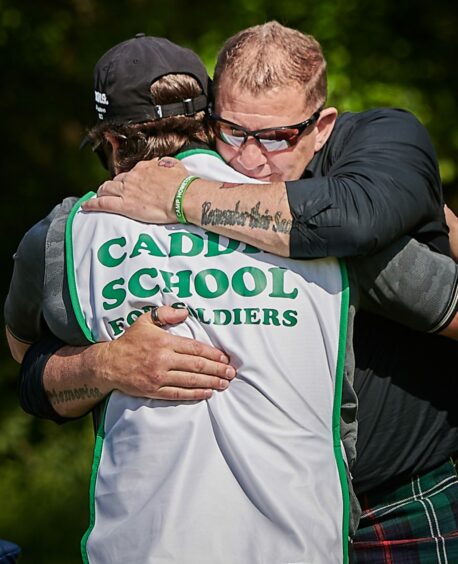
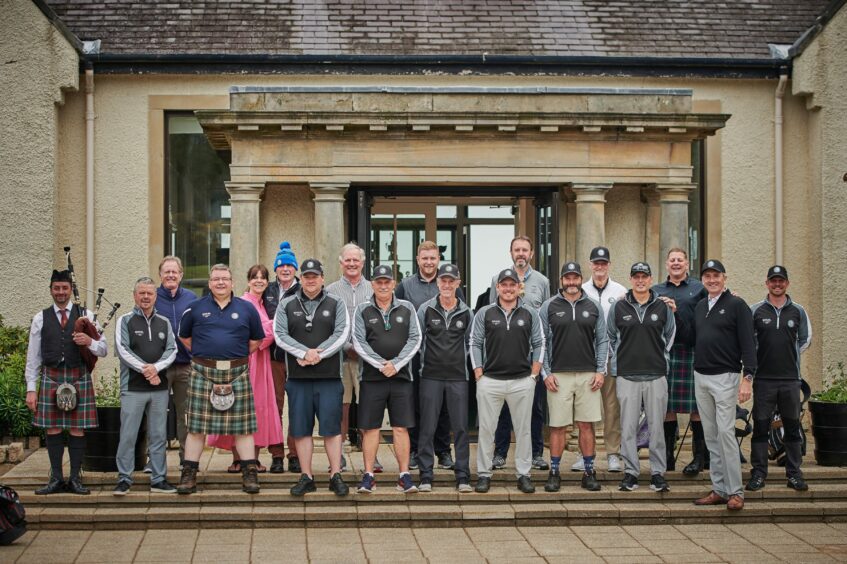
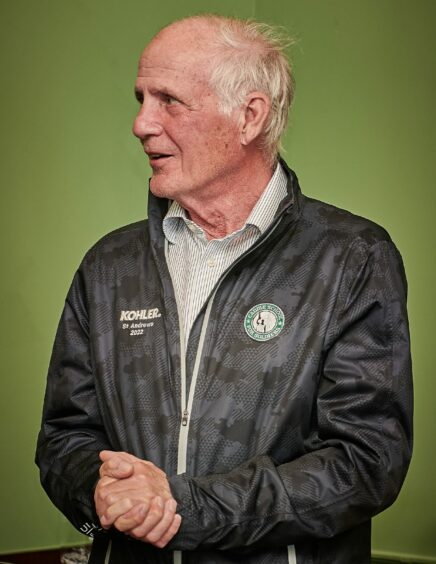
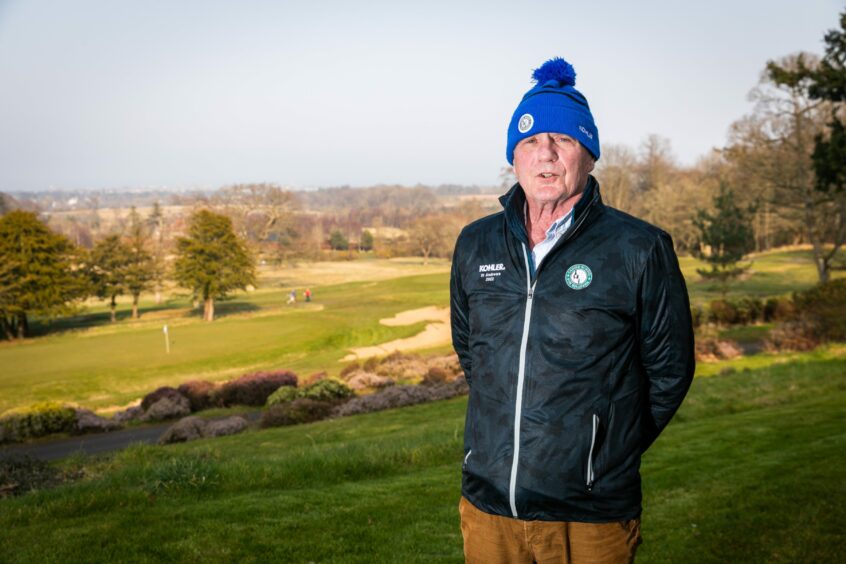
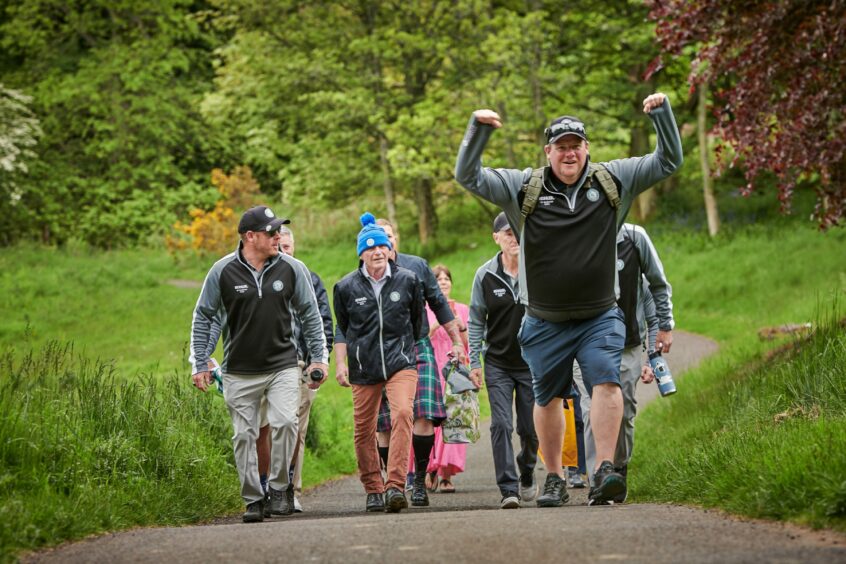
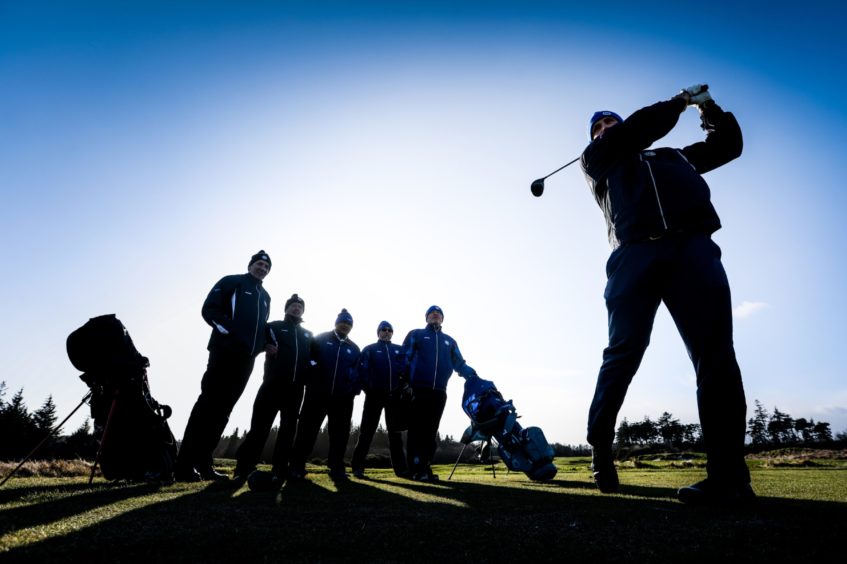
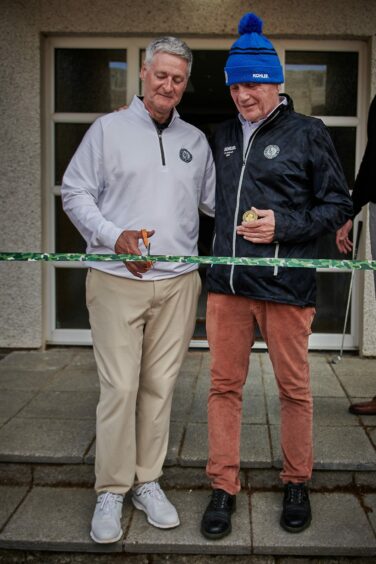
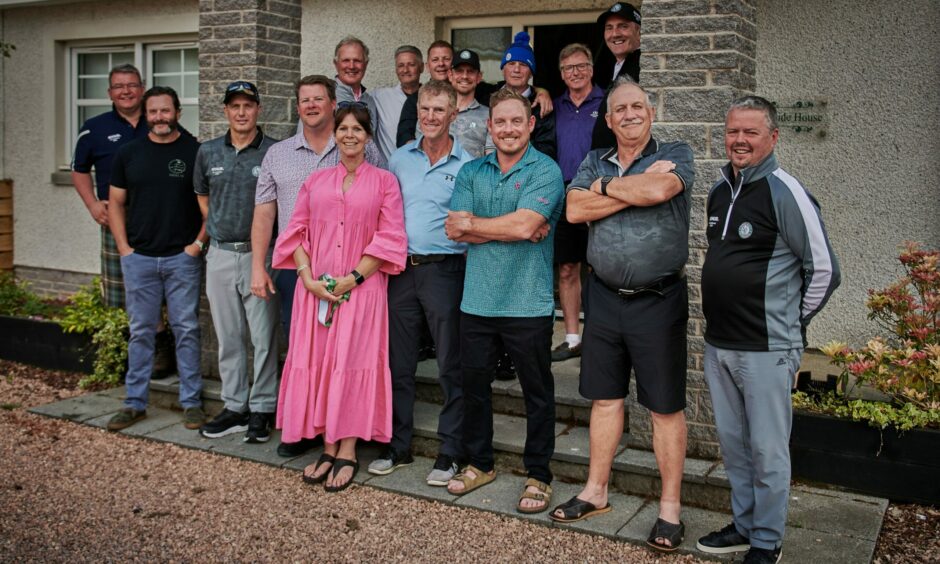









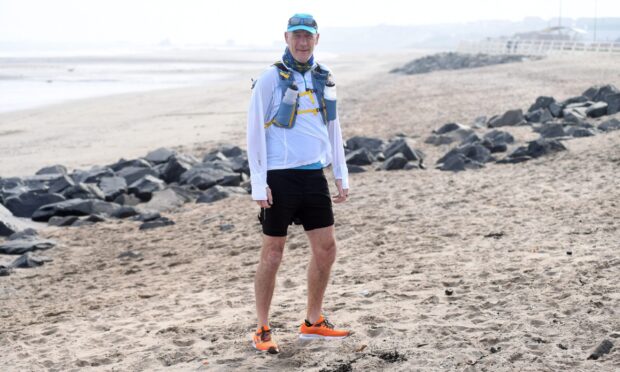
Conversation